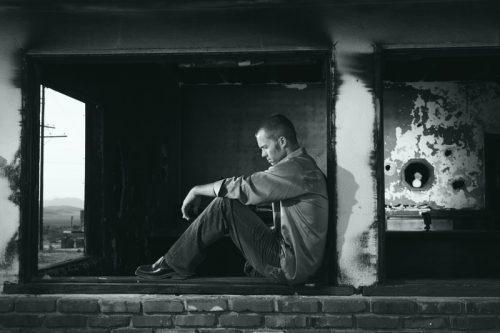It’s a Christmas classic. Baby, It’s Cold Outside was written 74 years ago, back in a day when the “Party Piece” was a highly respected form of entertainment (you know, before we all sat around tables each checking out our social media likes).
In 1944, Frank Loesser wrote, Baby, It’s Cold Outside for his wife, Lynn Garland, and himself to sing at a housewarming party in New York City.[i] It became an instant hit that has, since that time, been featured in movies and recorded by many famous artists. The song is always sung as a duet, usually with a man and a woman, and sometimes with the woman in the “lead” role.[ii] The lead person is trying to convince their date to stay rather than go home and, what follows, is a tongue-in-cheek exchange of reasons to stay and reasons not to.
Song Gets Cold Shoulder
But over the past few years, and more recently in light of the #MeToo movement, there have been increasing concerns about the song. There are some lyrics that, when sung by a woman, raise concerns. For example, “Say what’s in this drink?” And, “I ought to say no, no, no sir.”
Now don’t get me wrong, I am in no way trivialising the #MeToo movement, or what countless women have been subjected to at the hands of men, especially those in powerful roles. I am also very aware that, as a white man, I have not had to deal with a lot of the things that others (women, people of non-white races, LGBTIQ people, etc) have been subjected to. If someone is offended by “Baby, It’s Cold Outside” then they’re better not to listen to it. But should it be banned as it has happened at some radio stations in the USA and Canada?
One such radio station, Star 102 Cleveland, even asked their audience, “Should we play ‘Baby, It’s Cold Outside’ during the holiday season?” 94% said, “Yes, it’s a classic.” The station banned the song anyway.
Meaning & Context
So, what is this song really all about? When you read the lyrics, the intent of the song becomes plain.[iii] It’s a game. They’re teasing and having fun, that’s the point of the song. When she (or he) says, “What’s in this drink?” She’s using a phrase that was “pretty common to movies of the era, and was primarily used by characters looking to excuse their own behaviour.”[iv] There’s no inference here that a man is drugging a woman to rape her. In fact, the woman actually wants to stay but is concerned about what others (her parents, the neighbours, her brother, sister or maiden aunt) would say about her if she did. This much more accurately reflects the attitudes of the 1940s and the intent of the song.
If radio stations want to look for some songs to ban, how about banning The Rolling Stones’ Brown Sugar song for example? The song is about a slave trader who enjoys raping African slaves. And just a cursory look at the current charts is enough to curl your hair. Almost half of the Australian Top 50 songs are marked, “explicit.” In the USA three-quarters of the songs in the Top 50 are explicit. These songs are full of sexual exploits and overtones, drug use and abuse, demeaning language towards women who are often portrayed as sexual conquests, and the foulest language. Many of the current songs make Baby, It’s Cold Outside look tame and harmless by comparison. So, why don’t we hear more protests about contemporary songs? Why pick on a song written almost three-quarters of a century ago?
Sensitive or Desensitised?
Glenn Anderson, a host at the Star 102 station, blogged that although the song was written in a different era, the lyrics felt “manipulative and wrong”. “The world we live in is extra sensitive now, and people get easily offended, but in a world where #MeToo has finally given women the voice they deserve, the song has no place.”
The world we live in is extra sensitive now? Really? Are you sure we’re not becoming desensitised?
[i] https://en.wikipedia.org/wiki/Baby,_It%27s_Cold_Outside
[ii] https://www.youtube.com/watch?v=ZtoW4aV-CIc
[iii]https://www.google.com/search?client=safari&rls=en&q=baby+it%27s+cold+outside+lyrics&ie=UTF-8&oe=UTF-8
[iv] https://nationalpost.com/news/canada/is-baby-its-cold-outside-an-ode-to-rape-that-deserves-its-sudden-banishment-from-canadian-radio




 In a modern context, we think of this Beatitude as meaning an end to war or violence. Peace lovers often want peace at any cost – or no cost at all. Peace lovers fall into two categories – the pacifists and the peaceful. The peaceful are people who want peace at any price even if it is to their detriment or the ultimate disadvantage of others. The pacifist, on the other hand, is a person who believes that war and violence are unjustifiable in any circumstance.
In a modern context, we think of this Beatitude as meaning an end to war or violence. Peace lovers often want peace at any cost – or no cost at all. Peace lovers fall into two categories – the pacifists and the peaceful. The peaceful are people who want peace at any price even if it is to their detriment or the ultimate disadvantage of others. The pacifist, on the other hand, is a person who believes that war and violence are unjustifiable in any circumstance.

 One in two Australian men will have had a mental health issue at some time in their lives. According to the
One in two Australian men will have had a mental health issue at some time in their lives. According to the  Men’s mental health and suicide is something that touches (or will touch) us all. Early intervention is a key strategy in mental health recovery. I encourage you to start and continue those difficult conversations with loved ones, stay connected to your community and seek help if you recognise some warning signs in yourself or another.
Men’s mental health and suicide is something that touches (or will touch) us all. Early intervention is a key strategy in mental health recovery. I encourage you to start and continue those difficult conversations with loved ones, stay connected to your community and seek help if you recognise some warning signs in yourself or another.

 It’s sad that, before I publish a blog or comment on social media these days I have to ask myself the question, am I prepared to lose friends over this? Why can’t we respectfully disagree without breaking a friendship? In fact, if you never have a conflict, you’re probably not experiencing genuine community, and your “peaceful” life could just be a sign that your existence has become stagnant.
It’s sad that, before I publish a blog or comment on social media these days I have to ask myself the question, am I prepared to lose friends over this? Why can’t we respectfully disagree without breaking a friendship? In fact, if you never have a conflict, you’re probably not experiencing genuine community, and your “peaceful” life could just be a sign that your existence has become stagnant.





